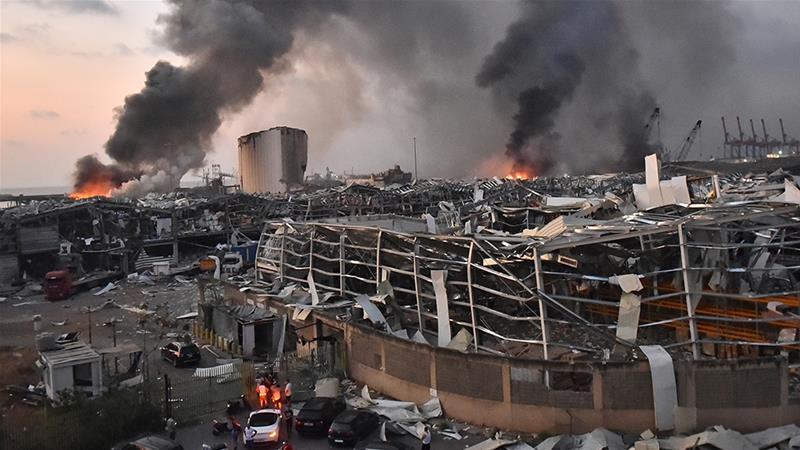By Alba Çela
As a terrible tragedy hit yesterday the Lebanese capital Beirut where a mass explosion of unsafely stored ammonium nitrate claimed hundreds of lives, thousands of livelihoods and wrecked half a city, people all over the world were reminded that the effects of corruption are as deadly as terrorist attacks, as destructive as war. Amids the great despair, rage and indignation prevailed as citizens asked how on earth was it possible for this tons of explosive material to be stored in the heart of the major port, so close to inhabited areas, right next to the silos of grain supposed to feed the population?
The answer is institutional corruption, malfeasance and lack of responsibility. Middle management levels of the port administration had frequently asked what to do with the dangerous materials but neither the courts, nor the ministries had answered.
For Albanians this tragedy rang painfully close to the bitter memory of the Gerdec tragedy where also a small factory dismantling weapons exploded claiming the lives of the little children, a pregnant woman and others and destroyed several homes. The explosion was heard all over the capital and put to great risk the sole international airport of Albania located close by. A combination of institutional corruption that permitted the site to work out of any safety standards and employing even minors resulted in one of the most tragic episodes in Albanian transition history.
The testimonials of Lebanese citizens that expect only low level employees to be punished for this while “bigger fish” go free, reminded Albanain citizens about the results of similar investigations which produced little if any accountability for the perpetrators.
And this is of course not the only example. Corruption causes tragedies and also exacerbates the results of natural calamities. Corruption in the construction sector permit and regulation industry raised the death toll after the major earthquake that hit Albania last November. Corruption in the healthcare sector is influencing the management of the Covid epidemics severely impacting preparedness and efficiency. Corruption is behind several deaths as it erodes human security in all fields: security and order, food quality, environmental pollution.
While it might sound hyperbolical history shows over and over again that corruption is indeed a weapon of mass destruction.
Corruption hollows the satte from within, it stands behind as the key reason for bad governance, for the mass migration of citizens and brain drain, and in the most extreme cases for complete state failure.
The world is mourning the tragedy of Lebanon. However one lesson should not be lost on us as citizens. We need to be vigilant, denounce corruption, ask institutions to be accountable, speak up.
We know what happens when we don’t!










